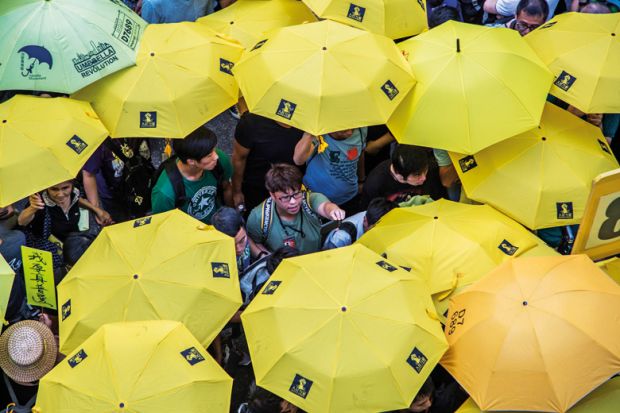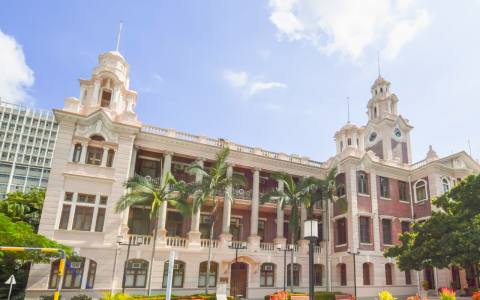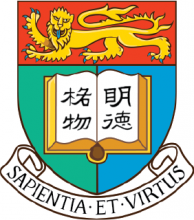Since I took up the presidency at the University of Hong Kong (HKU) in April 2014, I have certainly faced plenty of challenges. As for successes, it is maybe a little early to claim any, although there are certainly green shoots, and I feel I have led some significant advances.
I am optimistic about the future of HKU largely because of the quality of its people: we consistently recruit the most able students from Hong Kong and mainland China, and we attract gifted faculty from all around the globe. Together with wonderful facilities, ample resources and a cultural context which prizes education, how could one possibly feel anything other than optimistic? The biggest danger to Hong Kong and, by extension, to HKU, is that undue preoccupation with short-term complexities could allow opportunities to be missed. Hong Kong has unique advantages and assets: I’m not sure that everyone here appreciates them, or realises their fragility.
In order to understand my experience in Hong Kong, it is essential to understand two things: first the shifting sands of the relationship between Hong Kong and mainland China and, second, the key place that HKU plays in Hong Kong society. In a single word, the biggest challenge has been, is and will likely remain for the foreseeable future politics. Hong Kong society is split, and this divide is reflected in the media, in the public and in our own staff and students in terms of pro-establishment and pro-democratic “camps”. Even the most prosaic aspects of decision-making at HKU run the risk of being politicised, not least because many Hong Kong people seem to regard HKU as public property. The reason that the eyes of the world are on Hong Kong is that anyone with an ounce of common sense realises that China is going to be a major player in the future of the world, not only in higher education but also in many – perhaps all – aspects of the human existence. Hong Kong is the intersection of the Western world with China, a test bed for China’s “opening up”, the place where experiments are done, lessons are learned and boundaries are tested. HKU is at its centre.
I knew before I was appointed in 2013 that 2014 would be a climactic year in Hong Kong. However, I underestimated the extent to which I would be directly involved. “Occupy Central” was heavily trailed and anticipated, but even its advocates could not have imagined that streets of Hong Kong would be barricaded for 79 days by pro-democracy campaigners. During this period, my most fervent hope was that the protests would end without bloodshed: there were many dark times, often during the small hours of the night, when this did not seem assured. My students and staff were centrally involved: as expressed in Times Higher Education in 2015, I felt responsible for their safety, while also needing to protect their freedom of expression and maintain a respect for the law. Mercifully, it did end peacefully.
More recently, similar issues have arisen: was it reasonable for HKU students to blockade meetings of the university council? Should HKU students and staff be allowed to debate contentious issues, such as the independence of Hong Kong? The importance of freedom of expression in a modern university has been nicely articulated in 2015 by the University of Chicago’s specially convened Stone Committee, who conclude with the observation that “without a vibrant commitment to free and open inquiry, a university ceases to be a university”.
The many talented people I have recruited to HKU have added to the brilliance that was here when I started. We have coalesced around a vision of making our university even stronger, branding ourselves as “Asia’s global university”. We are already considered one of the most international universities in the world, but we want more. We are fundraising, brand-building, problem-solving and scenario planning. We are imaginatively addressing our chronic shortage of accommodation; modernising and improving our financial, human resources, estates, IT structures and functions. We are making progress on aspects of gender equity: I am proud to be one of the 10 university presidents worldwide that are impact champions for UN Women’s HeForShe initiative.
We have agreed new dual degree programmes with University College London, Sciences Po in Paris and the University of Southern California. More will follow, including with universities on the Chinese mainland: we already have a joint degree with Fudan University, and others are in development. We have signed deep institutional partnerships with the universities of Chicago and Sydney. We are developing a health system that incorporates our teaching hospital across the border in mainland China, as well as private and public hospitals in Hong Kong. We have a research institute in Hangzhou, which links us with Zhejiang University and provides a focus for our innovation and industrial linkages.
HKU is on the move: it is already great but it can be greater. Watch this space.
Peter W. Mathieson is president of the University of Hong Kong
Write for our blog platform
If you are interested in blogging for us, please email chris.parr@tesglobal.com
Register to continue
Why register?
- Registration is free and only takes a moment
- Once registered, you can read 3 articles a month
- Sign up for our newsletter
Subscribe
Or subscribe for unlimited access to:
- Unlimited access to news, views, insights & reviews
- Digital editions
- Digital access to THE’s university and college rankings analysis
Already registered or a current subscriber?






